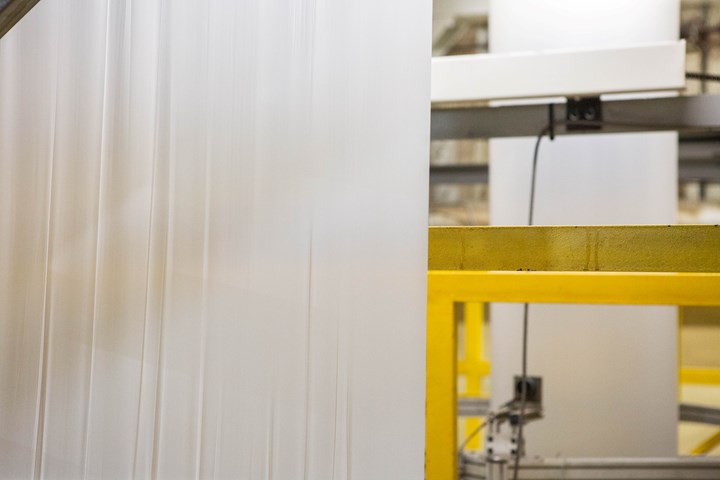Revolution Gets First-of-its-Kind LNO for Food-Contact PCR-LLDPE
The company’s PCR can be used at content levels up to 100% in the manufacture of food-contact articles for all food types under nearly all conditions of use.
Revolution Company has marked what is said to be a first-of-its-kind milestone for the recycling and consumer packaging industries. This, by recently having received a Letter of No Objection (LNO) from the U.S. Food and Drug Administration (FDA) for the company’s proprietary recycling method to produce post-consumer recycled, linear low-density polyethylene (PCR-LLDPE) for food contact applications.

PCR-LLDPE produced by Revolution’s process can be used at content levels up to 100% in the manufacture of food contact articles for all food types under nearly all ‘Conditions of Use’ as defined by the FDA. Revolution’s FDA LNO is said to represent a significant step forward in addressing the increasing global need for flexible film recycling and sustainable consumer packaging. In recent years, consumer awareness and demand for recycled content has risen dramatically as organizations such as the U.S. Plastics Pact have set aggressive targets to achieve as much as 30% recycled content in plastic packaging by 2025. Increased demand for recycled content has driven the need for recyclers to meet the quality standards and food-contact requirements set by consumer packaging applications.
Revolution’s advancements in flexible film recycling holds promise to bridge this gap by providing the widest possible applications to date for the use of LLDPE PCR in flexible films. Developing a method to meet food contact quality PCR represents the culmination of a long-term development project undertaken by the Revolution team. Revolution leveraged its more than 25 years of flexible film recycling experience to develop new proprietary processes, testing methods and quality control measures to meet the stringent requirements specified by the FDA.
Said Scott Coleman, Revolution’s senior v.p. of strategy and growth, “This was a multi-year, targeted project to improve our process, and it has really paid off in showing what can be done with recycled content. We feel this is just the beginning of tremendous growth and application development for PCR in flexible films.” Revolution expects additional approvals and advancements based on this first benchmark, paving the way for further innovation in PCR production. The company is currently expanding capacity and ramping up processes to meet market demand.
Related Content
-
Fundamentals of Polyethylene – Part 6: PE Performance
Don’t assume you know everything there is to know about PE because it’s been around so long. Here is yet another example of how the performance of PE is influenced by molecular weight and density.
-
Fundamentals of Polyethylene – Part 3: Field Failures
Polyethylene parts can fail when an inappropriate density is selected. Let’s look at some examples and examine what happened and why.
-
Flexible-Film Processor Optimizes All-PE Food Packaging
Tobe Packaging’s breakthrough was to create its Ecolefin PE multilayer film that could be applied with a specialized barrier coating.












